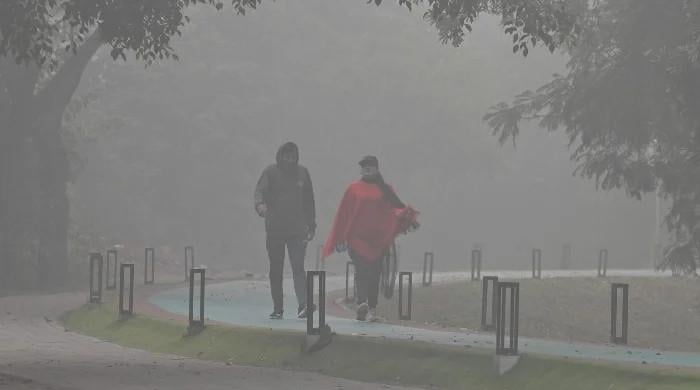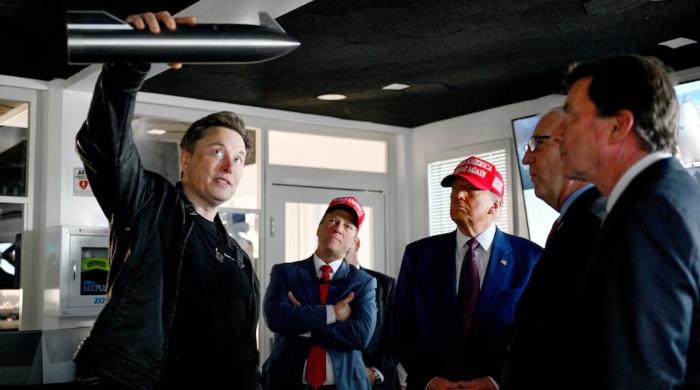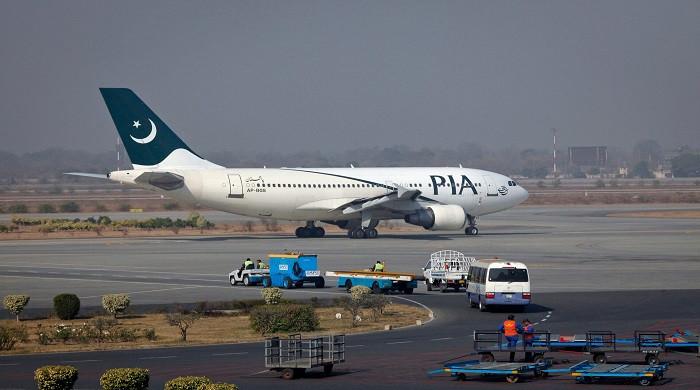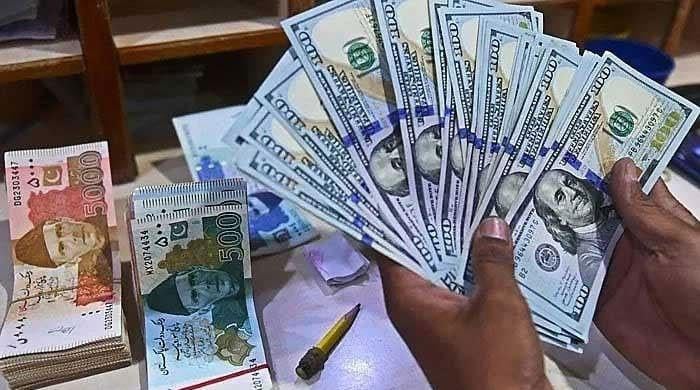Fuel crisis feared as KP petroleum dealers threaten strike over deregulation policy
Demanding policy review, dealers argue deregulation to set stage for market manipulation, create cartels
February 25, 2025
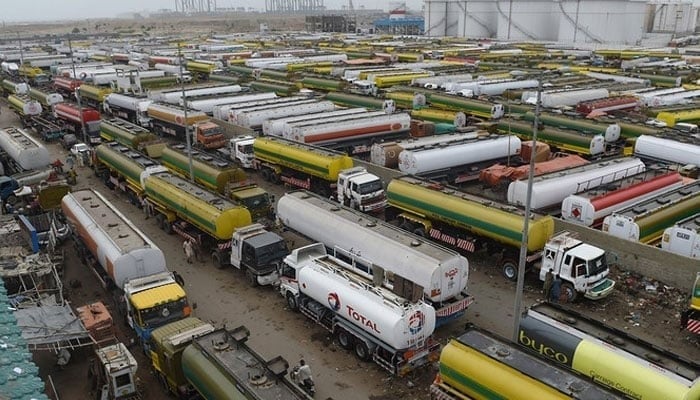
- KP oil dealers warn policy to allow OMCs to act in own interest.
- Fear move may lead to hoarding, smuggling, and black marketing.
- Say economy relies heavily on petroleum taxes, cannot afford dents.
PESHAWAR: Voicing grave reservations over the proposed petroleum deregulation, the Khyber Pakhtunkhwa Petroleum Dealers and Cartage Association (KPPDCA) has warned of a province-wide strike if the proposal was not reversed by the next week.
Last week, Federal Minister for Petroleum Musadik Malik stated that the government was planning to implement a deregulation policy, enabling oil marketing companies (OMCs) to compete by setting their fuel prices.
“This move will create an oil mafia and lead to market manipulation,” said KPPDCA president Gul Nawaz Afridi, addressing a press conference in the KP’s provincial capital.
If implemented, it will allow OMCs to sell fuels at rates lower than the government’s fixed prices to expand their market share — a prospect which has sparked concerns over its potential fallout on local refineries and petroleum dealers.
Afridi said the policy would grant oil marketing companies (OMCs) the power to act in their interest, potentially increasing smuggling and hoarding manifold.
“The country's economy relies heavily on the taxes collected from the petroleum industry, and any mismanagement in the sector could have serious consequences,” Afridi said and warned that the deregulation could undermine transparency in the oil industry, causing disruptions.
After building his case, the KPPDCA chief announced that if their demands were not met by March 3, petroleum dealers across the province would go on strike for an indefinite period of time.
Afridi's statement comes a day after Pakistan Petroleum Dealers Association (PPDA) Chairman Abdul Sami Khan's similarly strong reaction to the government’s announcement, The News reported.
The PPDA chief, in a letter to the petroleum minister, expressed surprise and concern regarding his recent announcement about the deregulation of the oil industry.
Referring to a previous meeting, he mentioned that it was conveyed that any move towards deregulation would not proceed without consultation with the PPDA, which is a major stakeholder in the petroleum industry, with a network of over 15,000 retail outlets across Pakistan and significant investments amounting to trillions of rupees.
“[The]PPDA condemn[s] this unilateral decision by the government. This decision has been made without our input, contradicting the assurance given by the minister in our last meeting that no actions would be taken without prior discussions with us”, Khan stated.
While the petroleum minister has suggested that deregulation will foster competition among OMCs and lower fuel prices for the public, the PPDA believes that this policy has been announced in haste.
Sector officials noted that this could increase the influx of adulterated oil and smuggled Iranian petroleum products, which the government was yet to control effectively.
The PPDA condemned the move and urged an immediate review of the decision and requested that the minister convene a meeting with a delegation from the PPDA to discuss this matter thoroughly.
Among major concerns is the destabilisation of the supply chain, which may shut down domestic refineries as they struggle to compete with multinational giants.
Volatility reigns supreme in the domestic fuel market amid frequent shortages, especially in smaller cities and the country also lacks the necessary infrastructure, making such a transition extremely risky.







